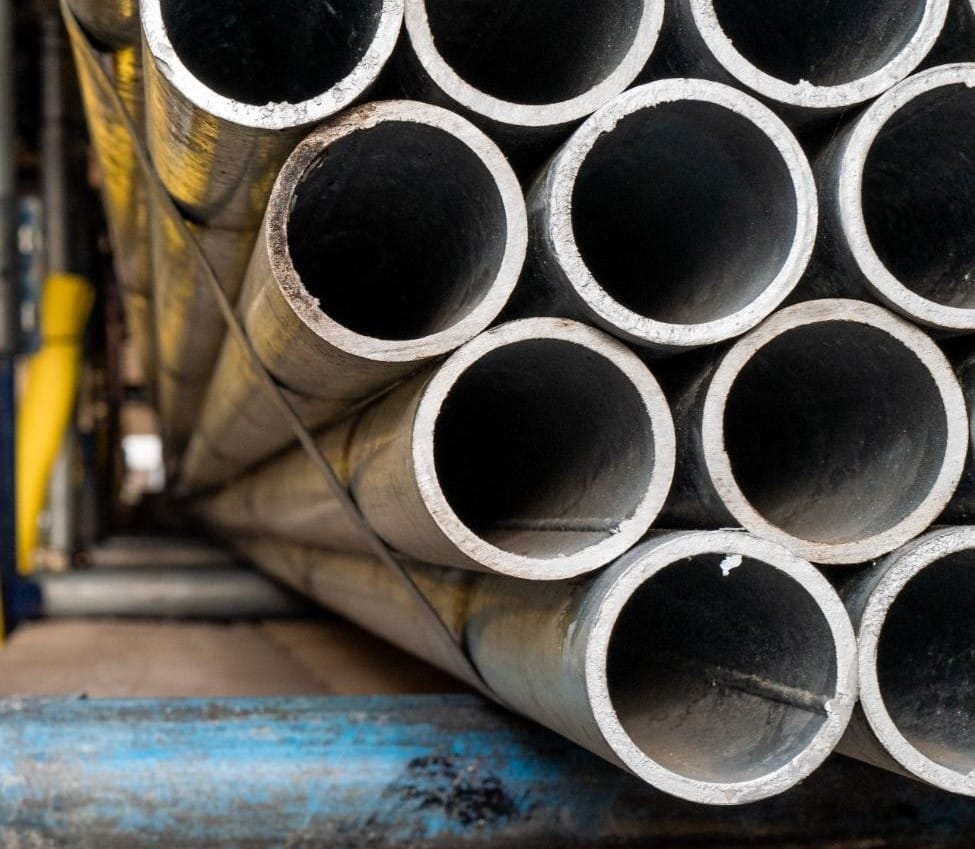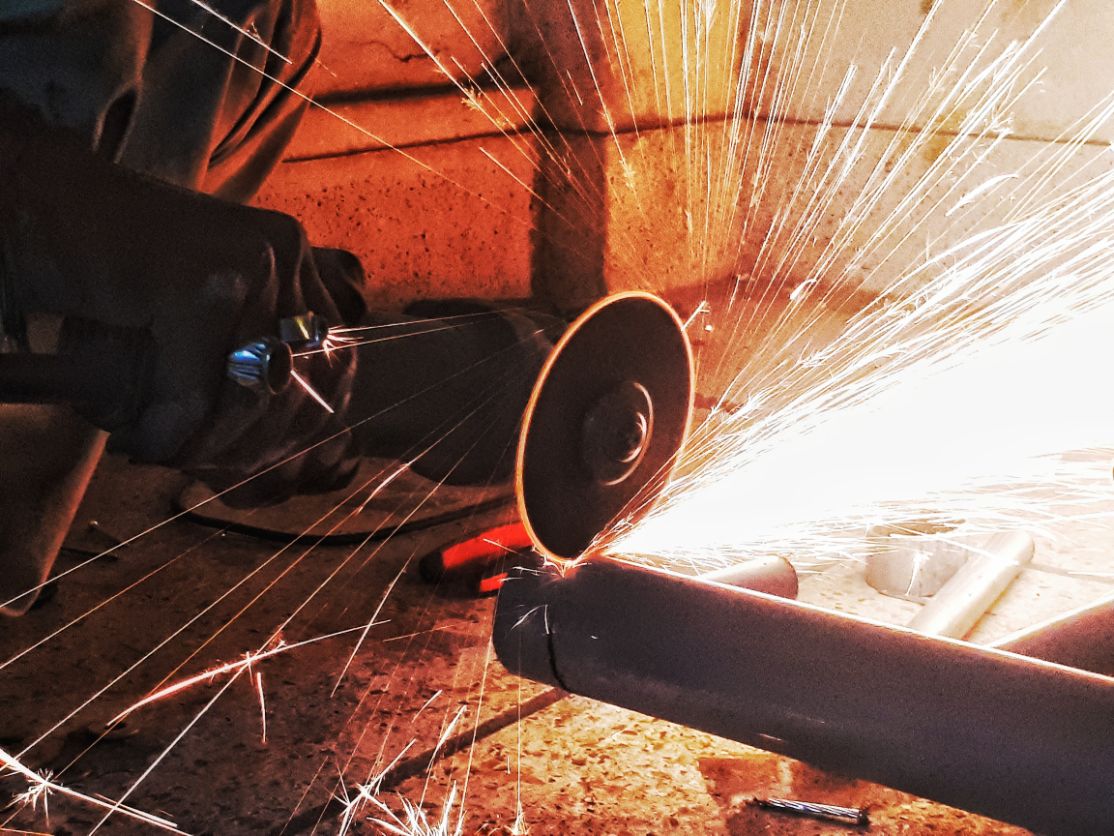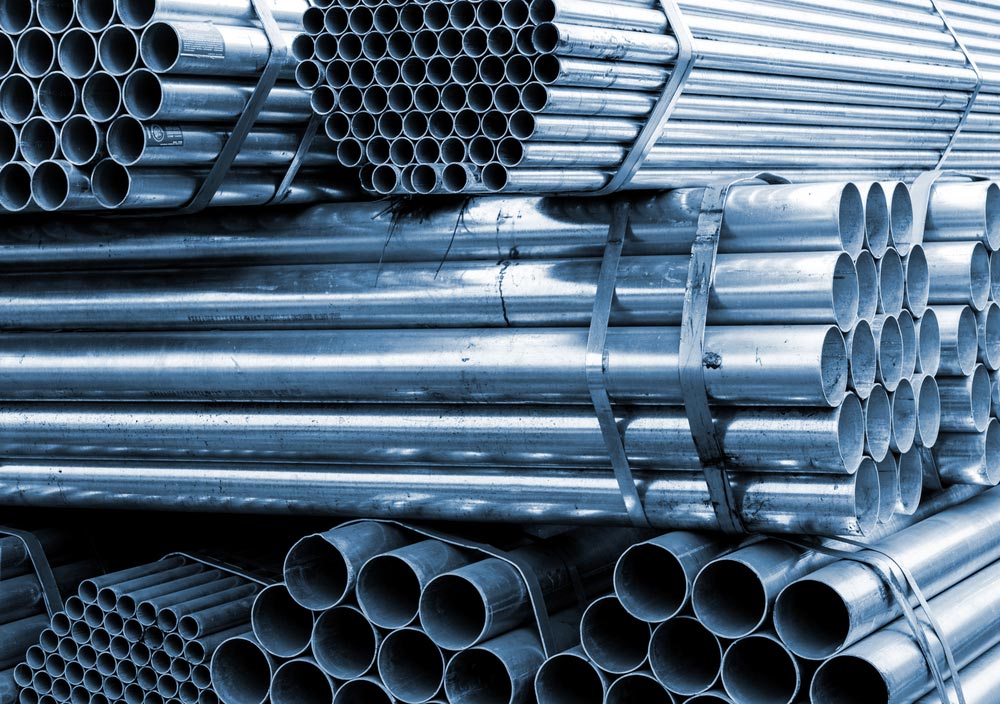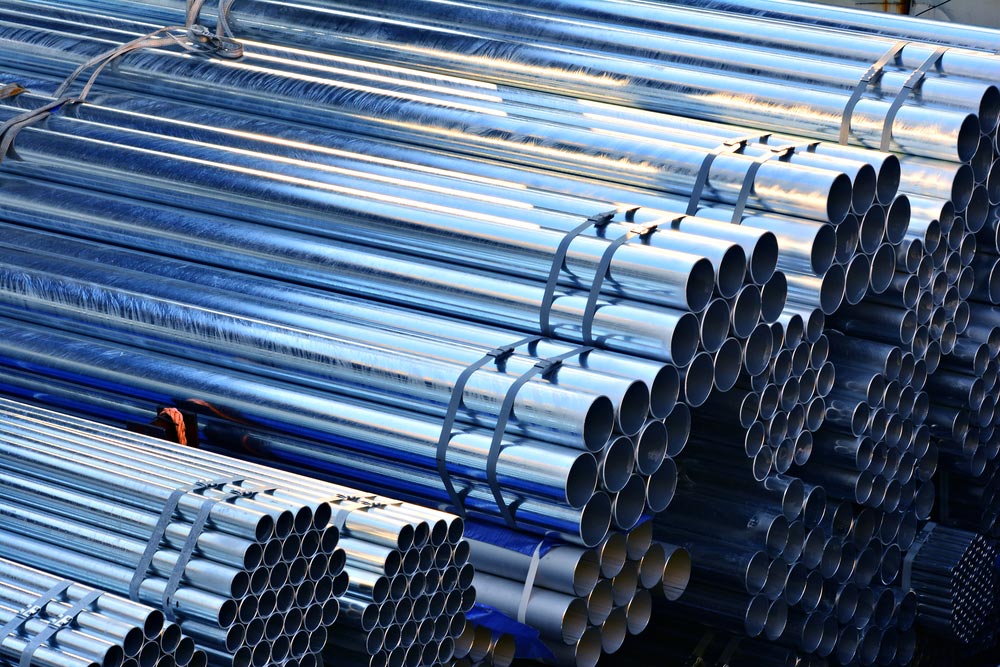Our steel pipe range complements our wide range of other metal products which can be used in commercial and industrial construction.
All of our steel pipes are of the highest quality and supplied directly to our customers quickly and efficiently.
Steel pipes have been around since the 19th century, and ever since their inception, they have become commonplace in countless industries across the globe.
Known for their incredible strength, lightweight, durability and resistance to torsion, steel pipes have shown their worth time after time as a dependable material for a huge range of purposes.
As far as ease of use goes, steel pipe is incredibly simple to work with. It can be manipulated into a huge variety of dimensions and strengths that allow its use for countless applications, from residential drains to industrial piping.
This article will give an overview of steel pipes, the common sizes used as well as how to cut and bend steel.

Steel pipe is very versatile and can be created to any size or dimension. Steel pipe is generally measured in three ways: thickness, the nominal bore (NB) (which measures the hollow section) and the outside diameter. Below is a table of the most common steel pipe sizes available.
Outside Diameter (OD)
Nominal Bore (NB)
Outside Diameter (OD)

Steel pipe is naturally strong and resistant to damage, so to cut it to size, a specialised tube or pipe cutter is used.
Some cutters will need to be manually adjusted to change the aperture, while others automatically adjust. There are other methods, such as using angle grinders or saws, but they will offer a poorer result than a pipe cutter.
Due to the natural properties of steel pipe, bending it to shape can be a labour-intensive process.
One of the easiest ways to bend steel pipe is using a pipe bender. This custom tool applies hydraulic force to the pipe to manipulate its shape and create a bend in the steel.
There are other, less effective ways to bend steel, such as with a blowtorch or tube roller. However, the risk of injury and poorly bent pipes is much higher when compared to a pipe bender.
For all your domestic and commercial steel needs in Darwin, contact us at Top End Steel Supplies today on 08 8931 0055.
For businesses in the north, Top End Steel Supplies is the leading provider of commercial pipe supplies. We are a family-owned and operated business, and we have been serving the region for over 35 years.
We pride ourselves on our customer service and our ability to provide the best quality products at the most competitive prices.
We stock a wide range of pipes, fittings, flanges and valves, and we have access to a range of other specialist products. We also offer a range of services, including pipe cutting and delivery.
Whether you need a single fitting or a complete piping solution, we have you covered.
Contact us today to find out more about our products and services.


Top End Steel Supplies is your one-stop shop for steel pipes and fittings in the Northern Territory. We carry a wide range of products to meet your needs, whether you’re a residential or commercial customer.
Our steel pipes are available in a variety of sizes and thicknesses to suit your project, and we also offer custom cuts to get the exact length you need.
In addition, we have all the fittings you need to complete your project, including elbows, tees, reducers and flanges. We’re proud to be your local source for all your steel pipe and fitting needs.
Give us a call today to learn more about our products and services.
Steel pipes are an important part of our infrastructure, and they have a wide range of uses. They can be used to carry gas and oil, as well as deliver high-pressure steam and air. Steel pipes are also commonly used in construction to support buildings and structures. In addition, steel pipes can be used to transport water and other liquids. The versatility of steel pipes makes them an essential part of our infrastructure.
When properly installed and maintained, they can last for decades or even centuries. This is one of the reasons why steel pipes are still used in many historic buildings. The steel pipes in these buildings have withstood the test of time, continuing to provide reliable plumbing services.
In addition to their durability, steel pipes are also prized for their strength. They can withstand high levels of water pressure, making them ideal for use in residential and commercial applications.
Yes. Steel pipes have a number of advantages over other types of piping products. For one, they are made from recycled materials, so they have a smaller environmental footprint. Additionally, steel pipes can be reused or recycled at the end of their lifespan.
This makes them a more sustainable option than other types of piping, which often end up in landfills. Finally, steel pipes are very durable and have a long lifespan, so they will not need to be replaced as often as other types of piping. As a result, they can help to save money over time.
Steel pipe fittings are a versatile and widely used type of piping. They are often used to connect sections of pipe together or to join pipe to another type of piping. Steel pipe fittings come in a variety of sizes, shapes, and finishes, making them suitable for a wide range of applications.
Common uses for steel pipe fittings include connecting pipes for carrying water, gas, or oil, joining pipes together or connecting pipes to valves, pumps, or other devices. Steel pipe fittings are durably constructed and can withstand high temperatures and pressures, making them an ideal choice for many industrial applications.
When properly installed and maintained, steel pipe fittings can provide reliable service for many years.